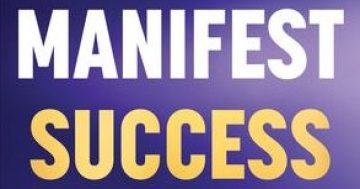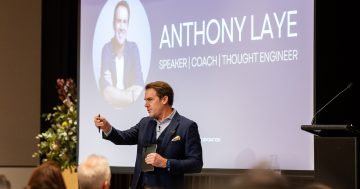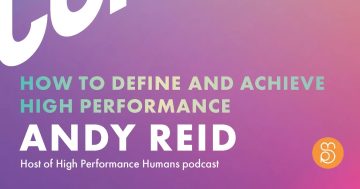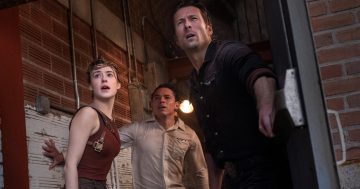Brian de Haaff* says successful leaders can never be as free to enjoy life outside work as the office junior — the secret is making the right trade-offs.
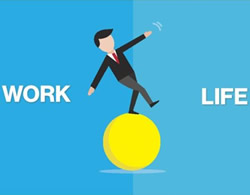 The guy with the laptop: This is how I am known by one of my kid’s soccer coaches.
The guy with the laptop: This is how I am known by one of my kid’s soccer coaches.
Let me explain. The kids need to be there 45 minutes before games to warm up.
There is not much for parents to do during that time except chat with each other.
So I pull out my laptop, find some shade, and work.
Once the game begins, I put the laptop away to be fully present for it.
This is a conscious choice, but I do miss out on those pre-kick-off conversations with other parents.
For every action you choose, there is another action that will be delayed or never completed.
Something will be missed, and you have to take responsibility for what you are giving up.
For example, I do not frequently go to movies or concerts. I always attend to Aha!-related business during extended family trips.
Now, I am not saying that I do not prioritise my family or that all I do is work.
Our family eats nearly every dinner together.
I go to our kids’ events, and I even work out six days a week to stay healthy.
Aha! being an entirely remote company does help — I can stay connected from most places.
However, it does not mean that I can do it all or be fully engaged in everything around me.
Sometimes this seems selfish. I know that.
Every successful leader does make selfish choices.
You just want to make sure you are aware of and consciously choosing what you do and do not do.
You want to understand the ‘why’ so that if your future self looks back and asks, you will be able to answer.
After all, you could make yourself sick questioning all the ‘what if’ scenarios.
You need a way to clearly think through and vet your own judgment — especially when it comes to what you will not do and who you will not be able to spend time with.
Again, I am not talking about things like choosing work over a family emergency, but more the everyday things.
The pre-soccer parent banter; the trip to the theatre with your partner; the odd lunch out with friends.
Here is how I try to approach the paradox of choosing what to spend time on and how to not hate having made that decision in the future.
Goals:
Understand what you want to achieve and why it is important to you.
What are you really working for? What will success today enable even more tomorrow?
What efforts will have the biggest impact? What is structural and what is ephemeral?
You need to know the answers to these questions.
Values:
Make time for what you value.
What principles do you apply to make tough decisions?
For me, I only focus on what I believe will create real value.
I get invited to attend various meetings and conferences nearly daily — but I only attend those that are fundamental to the team’s success.
As far as conferences go, there has been only one that filled that criteria.
Understanding:
Invest in understanding what those you love truly need and want from you.
How can you best help them meet their own goals?
You might not always be able to help when they would like you to, but you can when they really need you to — if you understand what matters most.
You will also need them to be understanding of you and why you make the choices you do.
Finally, be understanding of yourself because it is highly unlikely that you will feel great about the trade-offs you choose to make.
Clarity:
Once you have done the deep thinking, it should be clear what you are doing and why.
The next step is to openly share that clarity with those who may be impacted by your decisions.
Tell people close to you what your goal is, what you value and anticipate committing to, and you will find less surprises and unhappiness along the way.
Some people consider what they do not do to be sacrifices. I do not think so.
You are choosing one action over another — one presence vs another.
It is not possible to just leave work at the office when you are a leader — and why would you want to?
You are fortunate to build something of meaning and help others do the same.
That is how ‘today you’ will be able to explain to ‘future you’ that the decisions you made were principled.
The paradox is accepting the decisions you make with and without regret.
*Brian de Haaff is the Chief Executive of cloud-based software company Aha! He can be contacted on Twitter @bdehaaff.
This article first appeared on the Aha! company website.


